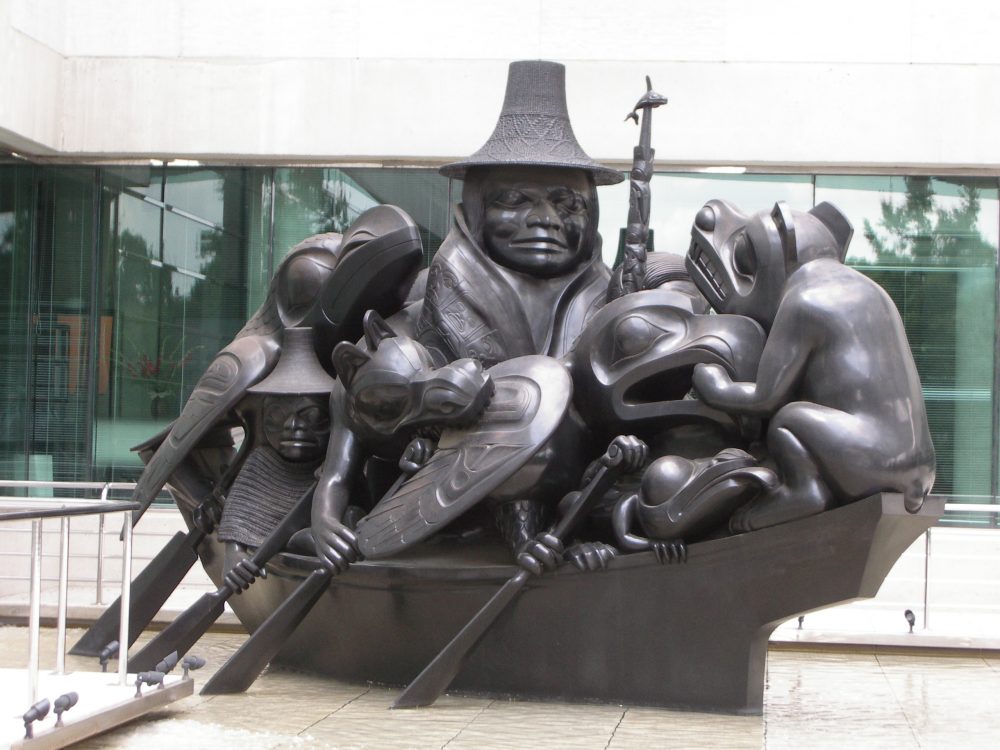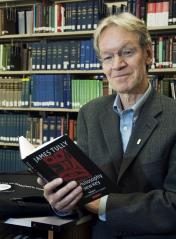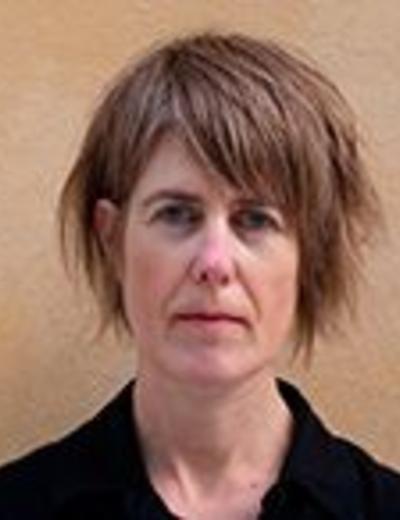Distinguished Lecture Series: 2022-2023
-
-
-
- * all 2022-2023 lectures presented online via Zoom
- Dr. Helena Pedersen, University of Gothenburg (Oct. 18, 2022)
- Dr. Margaret Robinson, Dalhousie University (Jan. 17, 2023)
- Dr. James Tully, University of Victoria (Feb. 14, 2023)
-
-
COMPLETED LECTURES:
Post-anthropocentric Pedagogies: Purposes, Practices, and Insights for Higher Education
- Department of Pedagogical, Curricular and Professional Studies
- University of Gothenburg, Sweden
- Tuesday, October 18, 2022, 12:30 – 1:50 p.m. (PDT)

Abstract: What does it mean to teach in higher education (HE) from vantage points that include nonhuman animals as significant subjects of educational practice? This paper addresses human-animal relations as a nascent area of HE pedagogy. It explores premises of, and approaches to post-anthropocentric HE pedagogies through an examination of a wide range of teacher experiences as expressed in research literature. Emerging from this contested and sometimes controversial field are three key pedagogical aspects that post-anthropocentric educators across disciplines seem to share; aspects that can offer important insights for pedagogical development: A passion and commitment to critical inquiry; innovative ways of connecting theoretical subject matter to life outside university; and embracing risk-taking in the teaching and learning process as a necessary part of HE teachers’ reflective practice.
Helena Pedersen is Associate Professor in Education at University of Gothenburg. Her work focuses on critical animal studies and critical animal pedagogies, critical theory, educational philosophy and posthumanist theory and methods. She is author of Schizoanalysis and Animal Science Education (Bloomsbury Academic, 2019) and the award-winning Animals in Schools: Processes and Strategies in Human-Animal Education (Purdue University Press, 2010). Helena is Co-editor of the Critical Animal Studies book series (Brill) and co-founder of GU-CAS: University of Gothenburg’s Network for Critical Animal Studies in the Anthropocene.
Download the Event Poster PDF.
Animal-Centric Storytelling in Mi’kmaw Social Research
- Canada Research Chair in Reconciliation, Gender and Identity
- Associate Professor, Departments of English, Sociology and Social Anthropology
- Dalhousie University
- Tuesday, January 17, 2023, 12:30 – 1:50 p.m. (PST)

Abstract: Mi’kmaw stories transmit cultural teachings and engage listeners on spiritual, emotional, physical, and intellectual levels. Traditional stories feature animals prominently, often centering their experience in ways that highlight the Mi’kmaw worldview of all living beings as interconnected. Traditionally, stories were transmitted verbally, and tailored to context and audience, providing flexibility for cultural engagement and transmission. Comparing examples from multiple sources, this talk will demonstrate how stories can feature in Mi’kmaw social research, and will offer points to consider when analyzing Mi’kmaw stories collected in English text by settlers.
 Margaret Robinson is a two-spirit scholar and a member of Lennox Island First Nation who grew up in the Eskikewa’kik district of Mi’kma’ki, in what is currently Nova Scotia. Her research interests include food sovereignty and how cultural identity, language, and the arts can promote wellbeing for oppressed people. Margaret’s research is supported by the Tier 2 Canada Research Chair in Reconciliation, Gender, and Identity. Professor Robinson is author of “Is the Moose Still My Brother If We Don’t Eat Him?” in Critical Perspectives on Veganism (Palgrave Macmillan, 2016), among other publications.
Margaret Robinson is a two-spirit scholar and a member of Lennox Island First Nation who grew up in the Eskikewa’kik district of Mi’kma’ki, in what is currently Nova Scotia. Her research interests include food sovereignty and how cultural identity, language, and the arts can promote wellbeing for oppressed people. Margaret’s research is supported by the Tier 2 Canada Research Chair in Reconciliation, Gender, and Identity. Professor Robinson is author of “Is the Moose Still My Brother If We Don’t Eat Him?” in Critical Perspectives on Veganism (Palgrave Macmillan, 2016), among other publications.
Download the lecture poster PDF.
[Bull Moose Image: NPS Photo/Kent Miller, Denali National Park. Public Domain.]
Animals as Citizens of Gaia Democracy
-
-
-
-
- James Tully, FRSC, PhD
- Emeritus Distinguished Professor, Political Science and Law
- University of Victoria
- Tuesday, February 14, 2023, 12:30 – 1:50 p.m. (PST)
-
-
-

Abstract: This online lecture explores the turn to the ways biodiverse life animates and co- sustains life over four billion years as the guiding light for co-sustainable human governance within ‘Gaia [earth] democracy.’ The complementary turn in law is from seeing law as a human-imposed order by states or global legal orders to planetary ‘multispecies constitutionalism.’ This is the view that the ways biodiverse planetary life sustains life constitutes a complex constitutive order that humans should redesign their legal orders in accordance with to recover from the 6th mass extinction. Research in both systems theory and earth-based pedagogy show the ways forward.
James Tully, FRSC (PhD Cambridge) is UVic Emeritus Distinguished Professor in Political Science and Law. He held positions in Political Science, Law & Philosophy at McGill University (1977-1995) and University of Toronto (2001-2003). His research is on the relationships between law and governance. His publications include: Strange Multiplicity: Constitutionalism in an Age of Diversity (1995), Public Philosophy in a New Key (2009), co-editor, Resurgence and Reconciliation (2018), To Think and Act Differently (2022), co-editor, and Democratic Multiplicity: Perceiving, Enacting and Integrating Democratic Diversity, (2022).
(PhD Cambridge) is UVic Emeritus Distinguished Professor in Political Science and Law. He held positions in Political Science, Law & Philosophy at McGill University (1977-1995) and University of Toronto (2001-2003). His research is on the relationships between law and governance. His publications include: Strange Multiplicity: Constitutionalism in an Age of Diversity (1995), Public Philosophy in a New Key (2009), co-editor, Resurgence and Reconciliation (2018), To Think and Act Differently (2022), co-editor, and Democratic Multiplicity: Perceiving, Enacting and Integrating Democratic Diversity, (2022).
- Download the Event Poster PDF.
- James Tully, “Animals as Citizens of Gaia Democracy,” 2023 (Advance paper)
- James Tully, “Sustainable Democratic Constitutionalism and Climate Crisis,” McGill Law Journal, 2020


